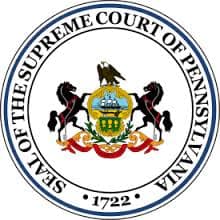 A recent Legal Intelligencer story, “Client Identities, Legal Bills Can Be Disclosed, Court Rules,” reports that the disclosure of client identities is only protected by the attorney-client privilege when other information about the scope of the representation is in the public domain and revealing the identity would essentially reveal attorney-client communications, the Pennsylvania Supreme Court has ruled.
A recent Legal Intelligencer story, “Client Identities, Legal Bills Can Be Disclosed, Court Rules,” reports that the disclosure of client identities is only protected by the attorney-client privilege when other information about the scope of the representation is in the public domain and revealing the identity would essentially reveal attorney-client communications, the Pennsylvania Supreme Court has ruled.
The case stems from a Right to Know Law (RTKL) request by Associate Press reporter Marc Levy for legal bills related to the Senate’s hiring of attorneys to represent former state Senator Robert J. Mellow and other Democratic caucus employees. The Senate had argued the name of clients and the descriptions for the services the attorneys provided them were protected by the attorney-client privilege.
In the majority opinion, written by Justice Max Baer, addressed the issue of whether descriptions of legal services are privileged. Baer said at the outset of his opinion that general descriptions of legal services included in attorney invoices are not privileged, while specific descriptions that would reveal attorney-client communications are protected.
Later in his opinion, Baer dismissed the Senate’s argument that the Commonwealth Court had issued a bright-line rule finding legal descriptions were not protected. Rather, Baer said, the court and special master did a line-by-line analysis of the legal invoices and redacted those descriptions it felt were privileged. The relevant question, Baer said, was whether the descriptions would result in disclosure of information otherwise protected by attorney-client privilege.
“For example, descriptions of legal services that address the client’s motive for seeking counsel, legal advice, strategy or other confidential communications are undeniably protected under the attorney-client privilege,” Baer said. In contrast, an entry that generically states that counsel made a telephone call for a specific amount of time to the client is not information protected by the attorney-client privilege, but, instead, is subject to disclosure under specific provision of the RTKL.”
